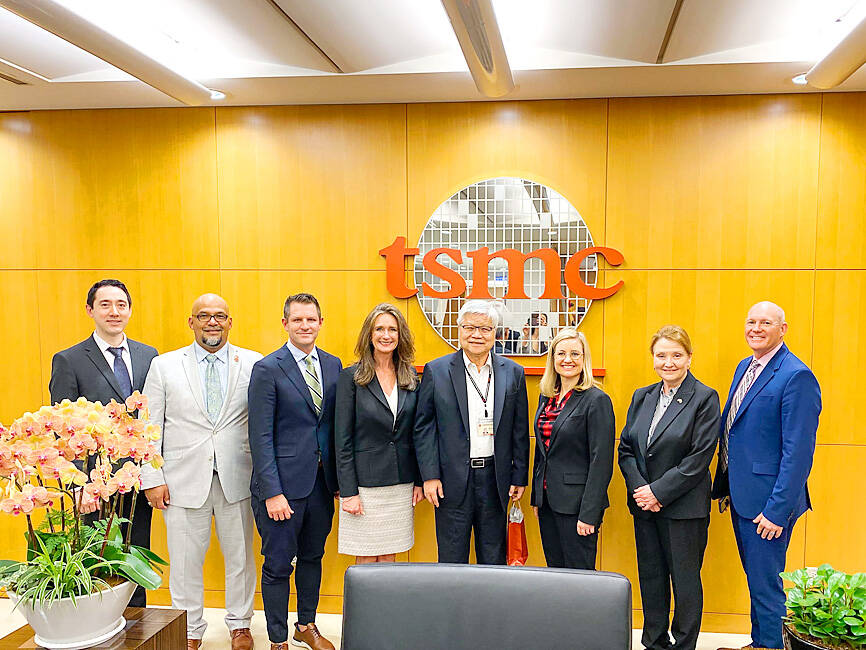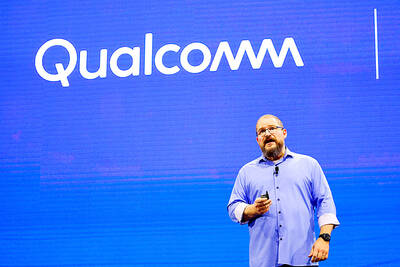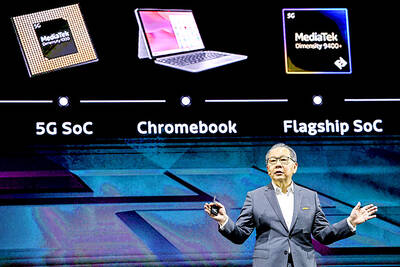Green energy developers in Taiwan are expected to make new investments in Phoenix, Arizona, following in the footsteps of contract chipmaker Taiwan Semiconductor Manufacturing Co (TSMC, 台積電), according to a major business group in the US city.
During a recent three-day business trip to Taiwan, Greater Phoenix Economic Council (GPEC) president and CEO Chris Camacho told the Central News Agency that he and his delegation had met with TSMC executives, as well as with representatives of electric vehicle, battery and energy storage companies, to discuss possible Taiwanese investments in Phoenix.
“TSMC was the catalyst that has now opened the door for dozens of other conversations that we’re having with leading (Taiwanese) companies in electric vehicles and batteries and smart technology,” said Camacho, whose 30-member delegation arrived on July 8 and also included Phoenix Mayor Kate Gallego.

Photo courtesy of the Greater Phoenix Economic Council
TSMC, the world’s largest contract chipmaker, is investing US$40 billion in Phoenix to build two advanced wafer fabs. The first is scheduled to begin mass production of chips on the 4-nanometer process next year, while the other is scheduled to start commercial operations in 2026, producing the 3-nanometer chips that are TSMC’s most advanced technology currently in mass production.
In the interview, Camacho declined to name the other potential Taiwanese investors in his city, citing nondisclosure agreements.
“Because there are quite a few of them we’re working with right now, that will be ready over the next six months,” Camacho said, referring to the investment announcements, which he said would be made in the first quarter of next year.
He touted the development of the electric vehicle (EV) environment in Arizona, saying that the US federal government has provided the state with grants of US$76.50 million to build its EV charging infrastructure.
According to Camacho, there are currently about 20 million EVs on the road in the US, and the figure is expected to top 30 million over the next few years, with Arizona being one of the fastest-growing EV markets in the country.
Taiwanese companies can feed into the electric vehicle supply chain in the US by taking advantage of the Inflation Reduction Act (IRA), which is expected to spur US consumers to use EVs and can create tremendous business opportunities for Taiwanese investors, Camacho said.
“Whether it’s servicing these products from Taiwan, or making manufacturing investments in Arizona, that would make them competitive for the US market, because of the IRA,” he said, referring to the law that was approved last year by US President Joe Biden to take on climate change and consumer costs and to help drive the global clean energy economy.
Taiwan has a strong contract manufacturing capacity in electronics, and soon, non-semiconductor companies are expected to announce investments in Arizona, “which would be really exciting,” Camacho said.
In addition, over the past few years, Phoenix and Taiwan have been in discussions about direct flights, he said. The “top airlines” in Taiwan might have an interest in direct flight services between the two points, he said, expressing the hope that one of the major carriers will launch not only direct commercial passenger flights but also cargo services, to boost bilateral trade and the tourism industry between Taiwan and Arizona.
Commercial air connectivity will allow Arizonans to enjoy attractions in Taiwan such as the convenient high-speed rail system and beautiful beaches, he said, adding that many Taiwanese who travel to Arizona tend to favor tourist attractions like the Grand Canyon.
Meanwhile, the Phoenix delegation, during its recent meeting with TSMC CEO C.C. Wei (魏哲家), promised to provide the chipmaker with whatever assistance it might need to complete its first wafer fab in the US city on schedule.

Intel Corp yesterday reinforced its determination to strengthen its partnerships with Taiwan’s ecosystem partners including original-electronic-manufacturing (OEM) companies such as Hon Hai Precision Industry Co (鴻海精密) and chipmaker United Microelectronics Corp (UMC, 聯電). “Tonight marks a new beginning. We renew our new partnership with Taiwan ecosystem,” Intel new chief executive officer Tan Lip-bu (陳立武) said at a dinner with representatives from the company’s local partners, celebrating the 40th anniversary of the US chip giant’s presence in Taiwan. Tan took the reins at Intel six weeks ago aiming to reform the chipmaker and revive its past glory. This is the first time Tan

Qualcomm Inc is strengthening its partnerships with Taiwan Semiconductor Manufacturing Co (TSMC, 台積電) and original design manufacturers (ODMs) in Taiwan as it expands its presence in the artificial intelligence (AI) computer market, CEO Cristiano Amon said in Taipei yesterday ahead of the annual Computex trade show. “Historically we’ve always been a very big customer of TSMC, and we continue to be,” Amon said during a media Q&A session. “For chip manufacturing, we’re among the largest fabless [semiconductor designers],” he said, noting that Qualcomm, a leading provider of mobile and AI-enabled chipsets, ships about 40 billion components every year, with TSMC being

‘FAILED EXPORT CONTROLS’: Jensen Huang said that Washington should maximize the speed of AI diffusion, because not doing so would give competitors an advantage Nvidia Corp cofounder and chief executive officer Jensen Huang (黃仁勳) yesterday criticized the US government’s restrictions on exports of artificial intelligence (AI) chips to China, saying that the policy was a failure and would only spur China to accelerate AI development. The export controls gave China the spirit, motivation and government support to accelerate AI development, Huang told reporters at the Computex trade show in Taipei. The competition in China is already intense, given its strong software capabilities, extensive technology ecosystems and work efficiency, he said. “All in all, the export controls were a failure. The facts would suggest it,” he said. “The US

NEW PRODUCTS: MediaTek has been diversifying its product lines to minimize operational risks as mobile chips remain the company’s biggest revenue source MediaTek Inc (聯發科), the world’s biggest supplier of smartphone chips, yesterday said the tape-out process for its first 2-nanometer chip would take place in September, paving the way for volume production of its most advanced chip, likely to be its next-generation flagship smartphone chip, around the year-end at the earliest. MediaTek has been leveraging advanced process technologies from its foundry partner, Taiwan Semiconductor Manufacturing Co (TSMC, 台積電), to build its flagship mobile phone chips, a segment it once relinquished and then recovered four years ago as it released its Dimensity series. In the semiconductor industry, a tape-out refers to the